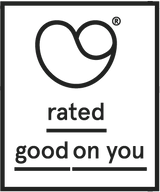
Cracking the Baby Brain Code: How AI is Helping Us Understand Infant Awareness
Ever looked into a baby’s eyes and wondered what’s going on in their tiny minds? They seem so new to the world - just starting to track movement and react to sounds - but what if they’re more aware than we realize? Thanks to a new study using artificial intelligence, we're starting to see that 3-month-old babies might be more in tune with their environment than was once thought. (Parents, take note: you were right.)
This fascinating study, published in Scientific Reports in 2024, is shaking up what we thought we knew about early cognitive development - and gives us another reason to spend lots of time engaging closely with our tiniest peeps.
What’s Going On Inside a Baby’s Head?
Until recently, figuring out what babies knew or understood involved a lot of guesswork. We’d watch how they'd follow objects with their eyes or how they'd react to sounds and touch, but there’s only so much you can learn from a glance or a wiggle. So the question stuck: when do babies really start to become aware of the world around them?
That’s where AI stepped in. A group of researchers used AI to analyze babies’ responses to their environment. Their goal? To see if 3-month-olds could recognize patterns and relationships in their surroundings - like cause and effect - something surprising from babies this young.
How AI Cracked the Baby Code
So, how did they do it? The researchers trained AI to look for tiny signals that indicate a baby is “getting” something about their environment. Tracking things like brain activity or subtle behaviors (think eye movements, body shifts, or facial reactions), the AI sifted through the data to spot patterns that suggest the little humans were aware of what washappening around them.
Essentially, the AI was able to detect when babies were recognizing a functional relationship between themselves and their surroundings - kind of like understanding that kicking a toy makes it move. That’s a huge cognitive step for someone who just learned how to smile!
Why Does This Matter?
This discovery changes a lot of what we thought we knew about how babies develop. If 3-month-olds are already aware of certain patterns in their environment, that means their brains are working at a much higher level than we expected at such an early age. This could change the way we think about early learning and interaction with babies—maybe they’re ready for more engagement earlier on than we’ve been giving them credit for.
And then there’s the AI part. Using AI to study infant cognition is a huge leap forward. Human observation has its limits, but AI can process huge amounts of data and notice things that might not be obvious to us. This opens up a whole new world of possibilities for understanding our little ones and how we can help them grow into their best big selves.
What’s Next for AI and Baby Brains?
This study is likely just the beginning. As AI continues to improve, we’re going to learn more about how babies think and understand the world. Imagine being able to map out the cognitive development of a child from the very first months of life, or even detecting issues like autism way before typical symptoms show up.
This study also forces us to rethink what we mean by “awareness.” If a three month old is aware of their environment, what does that say about when and how we develop our sense of self and our relationship with the world? These are big questions, and AI is helping us get closer to the scientific answers.
The Takeaway? Babies Know More Than We Think.
The fact that AI can detect awareness in three month old babies is an exciting step forward in understanding human development. It turns out that even at such a young age, infants are already engaging with the world in ways we didn’t expect. For parents, caregivers, and educators, this research hints that interacting with babies could be even more important for their development than we realized.
So the next time you find yourself making goofy faces or chit-chatting while you cook wearing your babe? They're likely more aware than they're letting on. :)





✨ just the best kids clothes for the planet.
Since 2008, we've made the softest, the snuggest, the coziest, the coolest baby, toddler, and kids clothes on (and for) the planet, created ethically at factories that pay employees a living wage, with sustainable materials that don't leave our planet worse off than we found it. We believe in passing it on, and our stuff is built to be beautifully outgrown, resold, and reworn by kid after kid after kid. We make our best basics for their best future, and we're so happy you and your little minimalist are part of the famm.











